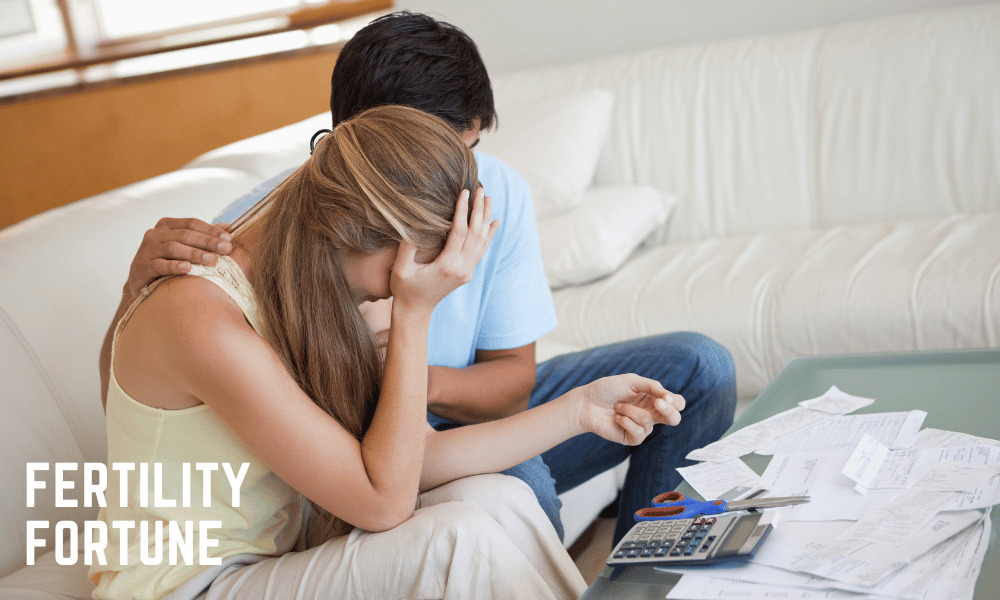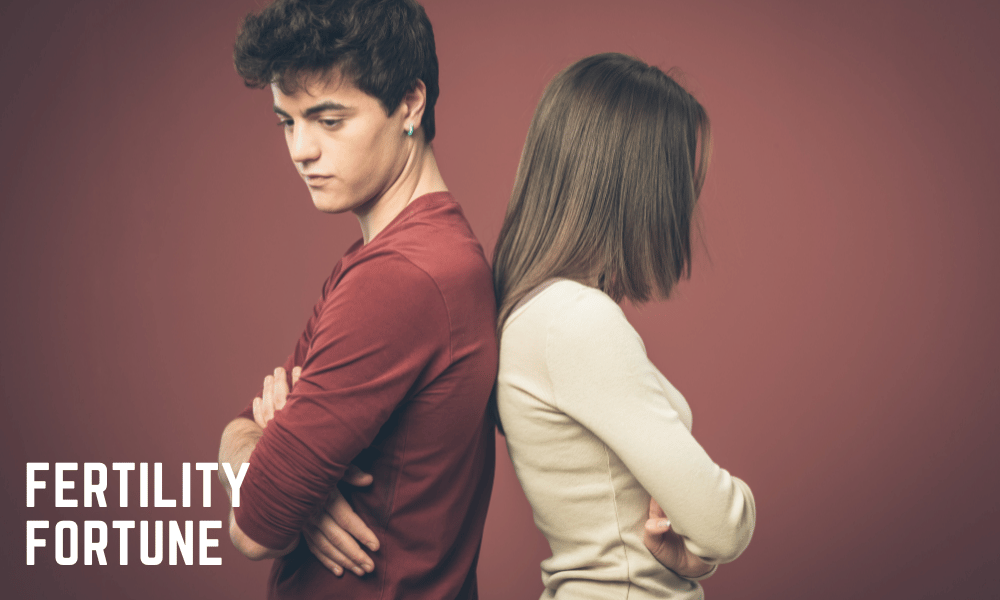
How many couples stay together after an abortion? Since decades, abortion has been a contentious and emotionally charged topic. Although the abortion experience is largely centered on women, its impact on couples or relationships also has a major effect. Many people wonder how many couples are still together after abortion. We will look at the statistical data and the various factors that affect the probability of a married couple remaining together after an abortion.
Understanding the Statistics
There is a limited amount of research available on couples remaining together following an abortion. But the research that has been done provides some insights into this issue. In a Journal of Marriage and Family study, it was found that 60% of couples that undergo abortions stay together. The remaining 40% end up separating. According to this statistic, while some couples manage to get through abortions together, many others do not.
The factors that influence the outcome of a relationship

There are several factors that influence whether a couple will stay together after having an abortion. Communication and support in the relationship are two of the biggest factors. Couples with open communication about abortions and who provide each other emotional support will be more likely to remain together. Couples that have relationship problems or are unable to communicate well may separate.
A couple’s relationship can be affected by the reasons for an abortion. Couples who decide to end their pregnancy because of medical issues or they don’t want to become parents may have a better chance at staying together. The decision is usually mutual, and often based on practical concerns. Relationship problems may occur when couples disagree about whether to terminate a pregnancy or are pressured by others to do so.
Relationships After Abortion: How many couples stay together after an abortion?
You and your partner are struggling with how to manage your relationship following an abortion. You are not alone in your emotional struggles. With the support of others, couples can move on together and strengthen their bond after an abortion.
We will discuss the emotional effects of abortion in a relationship, and give practical tips on how to get through the experience together. This article will provide you with all the information needed to keep a relationship healthy after an abortion.
One study found that despite research showing most couples remain together after abortions, a small percentage of them still end up breaking up. The study specifically found that 20% reported their relationship degraded after abortion.[1] But it’s important to know that after an abortion, most women and men are physically fine. A first-trimester termination has a rate of complications less than 1 percent [ 2].
As well, it is worth noting the impact infertility has on millions of families and community members. About 1 in 6 people are affected by infertility.[3]
It is also worth noting, that while the statistics don’t specifically pertain to abortion, 44% US adults report having reconciled with an ex following a separation, and 72% stay married for life. Women are far more likely than men to reunite with their exes, as 33.28% women have managed to get them back. This compares to only 23.47 % of men.[4]
Physical risks and side-effects of abortion include bleeding and cramping. For many women, this is more painful and uncomfortable than their period. It takes more time to perform an abortion via medication than a surgical procedure. And vaginal blood may last as long as 12 days.[5]
More details about the abortion status in every state are available on [6] and there is still debate over whether abortion pills can be obtained [7].
Postpartum Family Planning is, while it’s not directly linked to how many married couples continue to live together, the use of family-planning methods within the first six week following childbirth with the intention of preventing an unintended pregnancy.[8]
While 20 percent of couples say that they have a worsened relationship after abortions, the vast majority report being physically and mentally fine. The statistics reveal that infertility is a problem for millions, and many couples are able to reunite. Abortions are not without risk and can even have adverse effects. States vary in their current abortion laws. For new parents, postpartum pregnancy prevention is a major concern.
Understanding the Emotional Impact of Abortion

The emotional effects of abortion can affect both partners. Grief, guilt and shame can be common. To begin healing, it is essential to acknowledge and accept these emotions.
Like many other medical procedures, abortion can cause emotional distress to a woman [ 5]. Abortion can have a wide range of emotional effects on women. While some women feel empowered or relieved, others experience shame, guilt or grief.[6]
It is possible that post-abortion trauma can occur. Symptoms may include depression, moodiness, insomnia, nightmares and addiction. Other symptoms are anxiety, PTSD and relationship issues [ 1]. Support and empathy are essential for those who have experienced abortion loss. The grieving process is complex and difficult [2].
You should be aware of any emotional effects of an abortion, before you decide to have one. [ 5]. It can help to seek support through a support group or therapist in order to process these feelings [6].
Additionally, it is crucial to understand that abortion is a highly controversial and emotionally charged topic, and it is essential for individuals to have access to accurate and unbiased information when making decisions about their reproductive health [9]. It is also important to note that the emotional toll of traveling for abortion services can be significant [8].
The emotional effects of abortion are complex, highly individual experiences that vary from one person to another. Before making any decision, it is important to get support and learn about the emotional impact. It is also important that individuals have access to accurate, unbiased and up-to-date information in order to make an informed decision about their reproductive health.
What does the research says?
In one study, giving birth to a child temporarily extended romantic relationships for women. Most romantic relationships in the study ended quickly regardless of whether or not a woman underwent an abortion. Giving birth did increase the likelihood of women having nonromantic relationships with men over the next two years, regardless of whether the woman had an abortion.[1]
In another research shows that, in general, abortions performed at the woman’s own request have no negative psychiatric effects. The only time there are problems is when a woman has her pregnancy terminated because of external pressure.[2] [3]
The negative impact of an abortion on relationships seems to only be temporary. Relationship satisfaction drops slightly in the first year after an abortion. The difference between pre and post-abortion relationship satisfaction is not as noticeable in the years following.[4]
In a volunteer American sample, Miller et al. Around 150 women were asked (1998) if they had experienced any changes in their relationship since having an abortion. The majority of women did not experience any change in the satisfaction they felt with their partners. Some women reported a large drop in their satisfaction level with their relationships.[5]
A Study recruited 956 women in America who were seeking an abortion and tracked their mental health for five years. Control group consisted of women who were denied abortions due to gestational limits. This avoided the methodological problem that plagued previous studies. The rates of depression between those who obtained abortions and those who were denied an abortion are similar. Women denied abortion treatment initially experience higher levels of anxiety. These findings should be reflected in counseling for women who have unintended pregnancy.[1]
How Abortion Affects Individuals and Relationships

Abortion can present a psychological and emotional challenge for the couple. While women can experience guilt, grief and shame, men might struggle with helplessness, or be unsure of how to support their partners. This can put a strain on the relationship, and increase its likelihood of ending.
Abortion has both physical and emotional effects. After an abortion, women can experience moodiness and depression and may also have nightmares or anxiety.[1] Some women may experience cramps and heavy bleeding. This is more severe than normal period pain.[2]
The arguments in favor and against abortion are based on each woman’s personal perspective [3]. Research has shown that state restrictions of abortion can be detrimental to women’s health. [ 4]. Aside from infertility being a potential complication, which is rare.[5]
Abortion may also have an impact on relationships. The relationship of women who underwent an abortion in order to please their partner may be affected [ 1]. Other negative behaviors can negatively affect relationships, including being angry, shouting or not respecting boundaries showing a lack communication, honesty or openness, are also examples that can impact relationships negatively.[5]
It is vital that women receive comprehensive and supportive care.
A woman’s relationship can also be affected by abortion in a variety of ways. Some couples break up right after the procedure. Others may stay together, but still experience challenges related to abortion. A couple might struggle to rebuild their intimacy after an abortion or to repair trust. They may also experience disagreements and conflicts over the decision.
Resenting partner after abortion
After an abortion it’s not unusual for a person to have complex feelings that may affect their relationship with their spouse. Resentment toward a partner is an example of such an emotion. Resentment is a result of many factors such as lack or communication, disagreements on abortion decisions, unmet needs, etc.
If left unresolved, feelings of anger in a partnership can lead to long-term problems [3]. The support of a partner can help you cope with the effects of abortion. In order to navigate these complicated emotions, and ensure that both partners feel heard and understood by each other [1], effective communication and honesty will be key. The healing process after an abortion is a slow and continuous one.
Note that not everyone who has an abortion feels resentment for their partner. Resentment toward a partner may also be experienced in response to other major life events like the birth of your child. These feelings should be addressed and a compromise reached that is acceptable to both partners.
If you’re feeling resentment toward your partner following an abortion, then it is vital that you communicate these feelings honestly and with openness. It can be beneficial to seek support from your therapist or counsellor in order to navigate these complicated emotions. This will also improve the relationship.
Policy restrictions on abortion may lead to more women not being able to end unwanted pregnancies. This could keep them with abusive partners and put women and their kids at risk.[1]
Find Support and Resources
You or your partner may be struggling to deal with the effects of an abortion on your relationship. Seek support. You may need to seek support from couples therapy, individuals or groups of people who’ve experienced an abortion. You should also prioritize your own care and spend time processing the emotions you feel about the abortion.
How to cope with grief and loss
Normal to feel grief and loss after an abortion. Allow yourself to grieve. You might feel that you have lost part of your self or future. The grieving process is different for every person, but there are some typical ways that people cope.
- Speaking to a friend or family members you can trust
- Joining a group of people who experienced an abortion
- You may want to seek therapy or counseling
Dealing with feelings of guilt and shame
After abortion, guilt and shame can also be common. These feelings are neither uncommon nor unjustified. To move on in a healthy direction, you must find ways to effectively manage your feelings. You can use the following strategies to deal with guilt or shame:
- Speak to a Therapist or Counselor
- Practice self-compassion and forgiveness
- Engaging in positive activities and having fun
Rebuilding Trust and Communication
It is common that partners struggle to communicate and trust each other after having an abortion. Your partner may make you feel as if your relationship can no longer be repaired or that it is no longer a good one. But it is important to know that over time, trust and communication are able to be restored.
Open and honest communication
Rebuilding trust after an abortion requires effective communication. Talking openly about your thoughts and worries, while listening to your partner is important. Communication can be improved by:
- Regular check-ins are a great way to keep your relationship on track and discuss any problems.
- Active listening involves summarizing and clarifying your partner’s point of view.
- Avoid blaming the other person by using “I-statements” to describe your feelings.
Positive experiences are important to focus on
After an abortion it can be hard to rebuild intimacy and trust, but it is important that you also look at the good things in your relationship. It can be beneficial to spend time doing something you love together in order to rebuild your trust and strengthen the bond between you. You can have positive experiences by:
- Enjoying a getaway weekend
- Together, try a new activity
- Volunteering to support a cause that you and your partner care about
Moving Together
While the journey of emotional recovery after an abortion may be challenging, you can move forward and improve your relationship. These are some last tips on how to keep a relationship healthy after an abortion.
- It’s okay to be patient and remember that healing can take time.
- You can seek professional assistance, like therapy or counselling, if needed.
- Keep the lines of communication open and build trust with your partner
- Instead of dwelling on past events, focus on the future and present of your relationship.
Conclusion.
It is important to understand the impact abortion has on relationships. A significant number of couples do not manage to work through their abortion experiences together. A couple’s ability to stay together after an abortive experience depends on many factors. This includes the degree of support and communication within their relationship, and also the cause of the abortion. For those struggling to cope with the effect of an abortion on their relationship, seeking support and resources may be beneficial. You can overcome the challenges of the emotional journey with your partner if you have the support and the tools.Focusing on building trust, intimacy, and communication with your partner, while remaining committed, will help you overcome the obstacles of abortion. You can get help if your relationship is struggling after an abortion. You should not hesitate to seek help from a therapist or group of support. Together, with some time and work, you can build a solid and resilient relationship.
YOU MAY ALSO LIKE:
Bloating and weight gain after abortion
Navigating Your First Period After Abortion: First period after abortion how long does it last?
